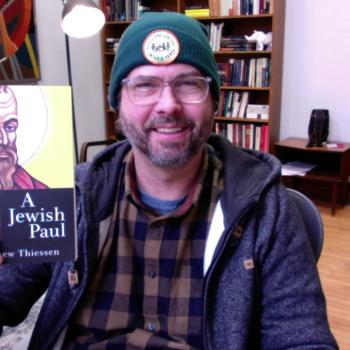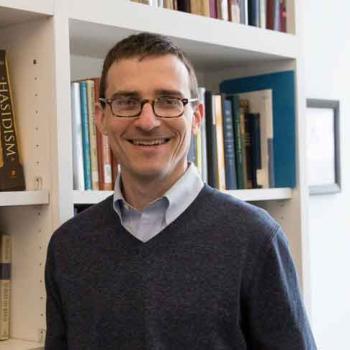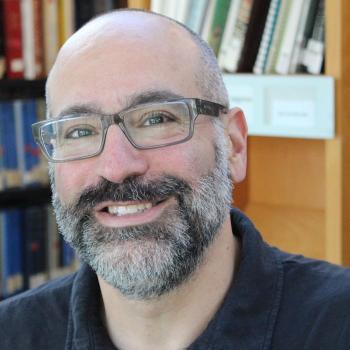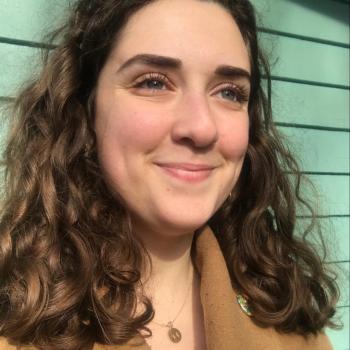By Rabbi Minna Bromberg ’10
Parashat VaYak’hel Exodus 35:1-38:20
“Pencils down,” the exam proctor says firmly. And in that moment, whatever hopes or fears I may have had about what I’ve accomplished in this test evaporate, and I am left with whatever answers I have managed to give in the time available.
It has been decades since I sat for any kind of formal timed exam like those etched in my memories and yet I have a similar “Pencils down” feeling nearly every time Shabbat arrives. “On six days, work may be done, but on the seventh day you shall have a sabbath of complete rest…” (Exodus 35:2) we read in this week’s Torah portion, VaYak’hel. I would not describe my typical Shabbat as being one of “complete rest” (I am still, after all, a mother of small children) but I definitely do a lot of ceasing from certain kinds of labor.
The kinds of work that Jewish tradition imagines we should do six days a week and rest from on Shabbat are derived from the fact that, immediately following this reminder of the commandment to keep Shabbat, Moses gives instructions for the work of building the mishkan—the Tabernacle that serves as the site of worship. From these detailed instructions—for various types of weaving, sewing, carpentry, metalsmithing and the like—rabbinic tradition decided that this is what the Torah meant when it referred to work that should be done for six days every week and refrained from on Shabbat.
Basmat Hazan, writing in the wonderful Israeli women’s Torah commentary Dabri Torah, brings another aspect of tradition into conversation with ideas about just what labor we should do during the week and rest from on Shabbat. She alludes to the commandment in Exodus 25:8 where we first hear of the mishkan, when God says, “And let them make Me a sanctuary that I may dwell among them.” There is a long tradition of reading the words “among them” (b’tokham) to mean not only in the midst of the people of Israel but also “within them.” Hazan then teaches that the work we are meant to be doing during the week is the work of creating a space within ourselves for God to dwell.
Shabbat is a time of welcoming the sacred into our lives. Our liturgy sings of welcoming the Sabbath as a bride. And our rabbinic tradition imagines that each of us gets an extra soul on Shabbat. The implication of Hazan’s reading of Parashat VaYak’hel is that we have six days each week to do the work of making a beautiful space within ourselves for the Divine and then we can rest from that labor and enjoy its fruits on Shabbat when we welcome God in.
When I encountered this beautiful commentary, I was at once uplifted and appalled. It feels like a lot of pressure to put on myself, to expect that when the “Pencils down” moment arrives I will have created an adequately lovely space for the in-dwelling presence of God. The Torah’s description of the construction of the mishkan is so intricate, so deluxe. Both the materials and the craftspeople’s work are of the highest quality. Rarely do I feel that I have devoted that kind of energy, skill, or attention to constructing my inner mishkan. My inner sanctuary feels as messy as my outwardly messy house.
So I am left with the hope that whatever inner work I have managed to do this week is enough. I do not believe in a God who expects perfection from me any more than I believe that this life is meant to be a harshly-graded timed exam. Instead, I am trying to trust that any Divine presence that is willing to find its way into my life will be one that can lovingly push aside the clutter on one end of the sofa of my soul’s inner sanctum and make itself right at home.
Founder and president of Fat Torah, Rabbi Minna Bromberg, PhD is passionate about bringing her three decades of experience in fat activism to writing, teaching and change-making at the nexus of Judaism and body liberation. Her forthcoming book is Every Body Beloved: a call for fat liberation in Jewish life. Minna received her doctorate in sociology from Northwestern University, with a dissertation on identity formation in interfaith couples, and was ordained at Hebrew College in 2010. She lives in Jerusalem with her husband, Rabbi Dr. Alan Abrams, and their two children.















